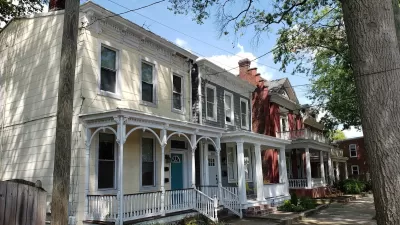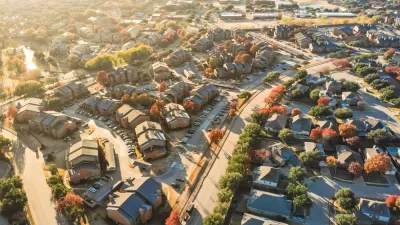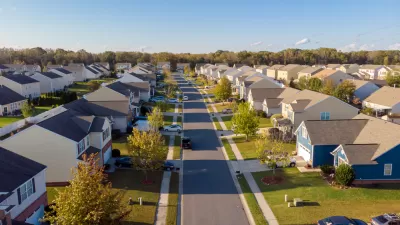Increasingly unaffordable housing in most U.S. metropolitan areas is pushing low-income workers farther away, decreasing their access to economic opportunities.

An in-depth examination of housing inequity in the 100 largest metropolitan areas in the United States by Thai Le, Edward Muña, Sarah Treuhaft, and Rasheedah Phillips delves into the “shrinking geography of opportunity” that is putting affordable housing and economic opportunities out of reach for many Americans.
“Not only is there an overall shortage of affordable rental homes, but they are rarely located in ‘high-opportunity’ neighborhoods that have high-quality schools, safe streets, clean air, parks, reliable transit, and proximity to jobs, retail, and services,” the authors write.
In the past, racially discriminatory policies, including redlining, urban renewal, and government-backed home loans (almost exclusively for white homebuyers), created geographic concentrations of opportunity and disadvantage throughout regions. Today, policies that are not explicitly discriminatory yet have racially inequitable impacts (e.g., exclusionary zoning), maintain these patterns of spatial inequality — effectively locking many people of color out of educational and economic opportunity.
The source link includes the full analysis, which concludes that “there is a growing gap in access to affordable housing and high-quality neighborhoods for working-class renters and renters of color.” The authors say that “Reversing the trend of shrinking neighborhood opportunity for low-income renters and ensuring that all residents have access to safe and affordable housing in opportunity-rich neighborhoods is crucial to reversing the racial and economic inequities that prevent equitable, prosperous regions.”
FULL STORY: The Shrinking Geography of Opportunity in Metro America

Maui's Vacation Rental Debate Turns Ugly
Verbal attacks, misinformation campaigns and fistfights plague a high-stakes debate to convert thousands of vacation rentals into long-term housing.

Planetizen Federal Action Tracker
A weekly monitor of how Trump’s orders and actions are impacting planners and planning in America.

Chicago’s Ghost Rails
Just beneath the surface of the modern city lie the remnants of its expansive early 20th-century streetcar system.

Bend, Oregon Zoning Reforms Prioritize Small-Scale Housing
The city altered its zoning code to allow multi-family housing and eliminated parking mandates citywide.

Amtrak Cutting Jobs, Funding to High-Speed Rail
The agency plans to cut 10 percent of its workforce and has confirmed it will not fund new high-speed rail projects.

LA Denies Basic Services to Unhoused Residents
The city has repeatedly failed to respond to requests for trash pickup at encampment sites, and eliminated a program that provided mobile showers and toilets.
Urban Design for Planners 1: Software Tools
This six-course series explores essential urban design concepts using open source software and equips planners with the tools they need to participate fully in the urban design process.
Planning for Universal Design
Learn the tools for implementing Universal Design in planning regulations.
planning NEXT
Appalachian Highlands Housing Partners
Mpact (founded as Rail~Volution)
City of Camden Redevelopment Agency
City of Astoria
City of Portland
City of Laramie





























